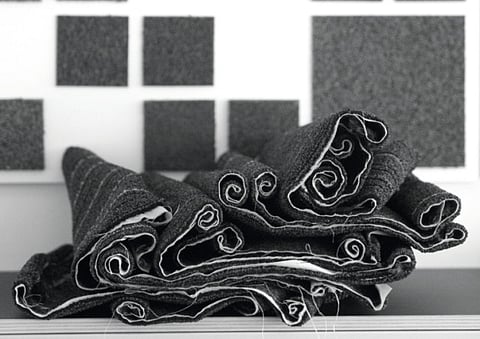Profiting from a green economy
Showing concern for the environment and improving the well-being of others are no longer practices detached from generating profits

In the past five years, European carpet manufacturer Desso has spent more than €30 million (Dh149.7 million) on making sure that its products are toxin-free, that the energy used in production is renewable and that its goods are capable of being completely recycled.
“The cost for us tends to run into tens of millions of euros and will run into tens of millions more. I think we will probably end up spending another €30 million. You get to a stage where you can eat the product — although we don’t recommend that — it’s that harmless,” Andre Dulka, Director, Middle East, Africa and India, Desso, tells GN Focus.
Despite the huge sustainability bill, Dulka says the decision makes business sense. “In the past five years, interest and demand has probably quadrupled. All projects are now designed with sustainability a main criteria,” he says.
The green economy, defined by the United Nations Environment Programme (UNEP) as “one that results in improved human well-being and social equity, while significantly reducing environmental risks and ecological scarcities”, is no longer divorced from profits. The fact that engineers can actually calculate savings in dirham terms is propelling growth of the green economy.
“Today, clean energy and clean technology bring better costs and efficiencies. We are entering the enterprise software phase for lighting, HVAC retrofits or whole-building energy. Costs have fallen enough so that managing those intelligently may suddenly produce a much higher return than was possible even two years ago,” Matthew Farren-Handford, Senior Manager, Clean Energy and Sustainability Services, Ernst & Young, tells GN Focus.
The move towards sustainable systems is now a part of the collective business consciousness in a diversity of sectors and the potential to convert consumers to sustainable lifestyles is enormous.
This is visible at the World Future Energy Summit, an event dedicated to renewable energies, energy efficiency and clean technologies, being held in Abu Dhabi from today until Wednesday.
Speakers not only include governments and environmental bodies but also financial institutions, department stores, oil and gas majors, energy companies and corporate consultancies. In the UAE, Masdar invests in renewable energy projects wherever there are attractive market opportunities which offer healthy returns on investment. The company says that it is committed to the commercial viability of renewable energy.
According to a report by UNEP, which looked at trade opportunities in six sectors ranging from tourism to agriculture, the global market for energy-efficient technologies is expected to nearly triple its worth to $2.2 trillion (Dh8 trillion) by 2020.
Consumer goods major Procter & Gamble agrees that being sustainable is a business decision. “We don’t believe that being both sustainable and profitable is a contradiction. Procter & Gamble has saved almost $1 billion over the past decade thanks to sustainability efforts such as our zero waste-to-landfill programme. Globally, we have ensured that 99 per cent of all materials entering our plants leave as either finished product or are reused, recycled or converted to energy. The remaining 1 per cent is diverted from landfill and into new revenue streams,” says Yassin Al Attas, Communications Director, Middle East, North Africa and Pakistan at Procter & Gamble.
The supply is driven by a demand for products that deliver sustainability, along with reasonable costs and quality. “Our research has found that the sustainable mainstream includes 75 per cent of the population. They are eco-aware, but will not accept trade-offs in cost and performance,” Al Attas says.
At Desso, innovation has come in the form of better design and technology. The company is working with lighting major, Philips, to create carpets that bounce back overhead lighting allowing for the creation of the same level of illumination with lesser wattage.
Farren-Handford says that low costs and superior technology work as defining factors in the energy sector too. “Given its technical maturity and low cost, wind will continue to dominate renewable energy growth for some time to come,” he says.
In addition, public policy is providing an edge to companies that choose to be sustainable. In 2012, His Highness Shaikh Mohammad Bin Rashid Al Maktoum, Vice-President and Prime Minister of the UAE and Ruler of Dubai, announced the launch of a long-term national initiative to build a green economy in the UAE under the slogan Green Economy for Sustainable Development.
It is through such efforts that the UAE dropped from the notorious first to third place as the most environmentally wasteful country on the planet on the global ecological footprint chart by the World Wide Fund for Nature.
Hussein Abaza, Former Chief of the Economics and Trade Branch of UNEP writes in a study, “The UAE is the first Arab country to launch the green economy initiative. The UAE has also become the centre of green building in the Arab world.”
Sign up for the Daily Briefing
Get the latest news and updates straight to your inbox



